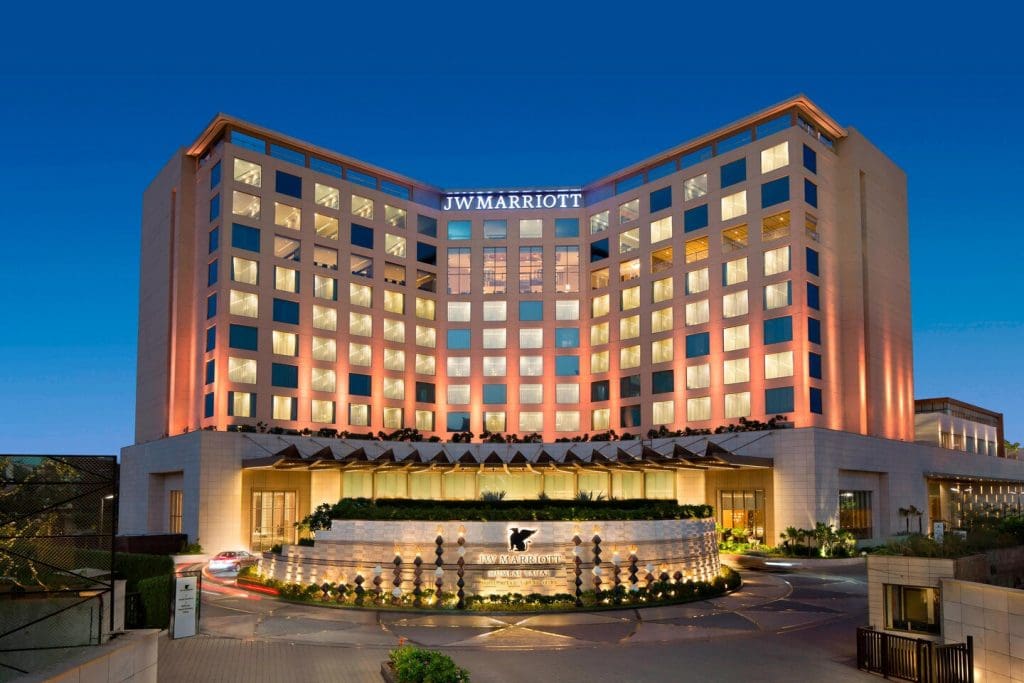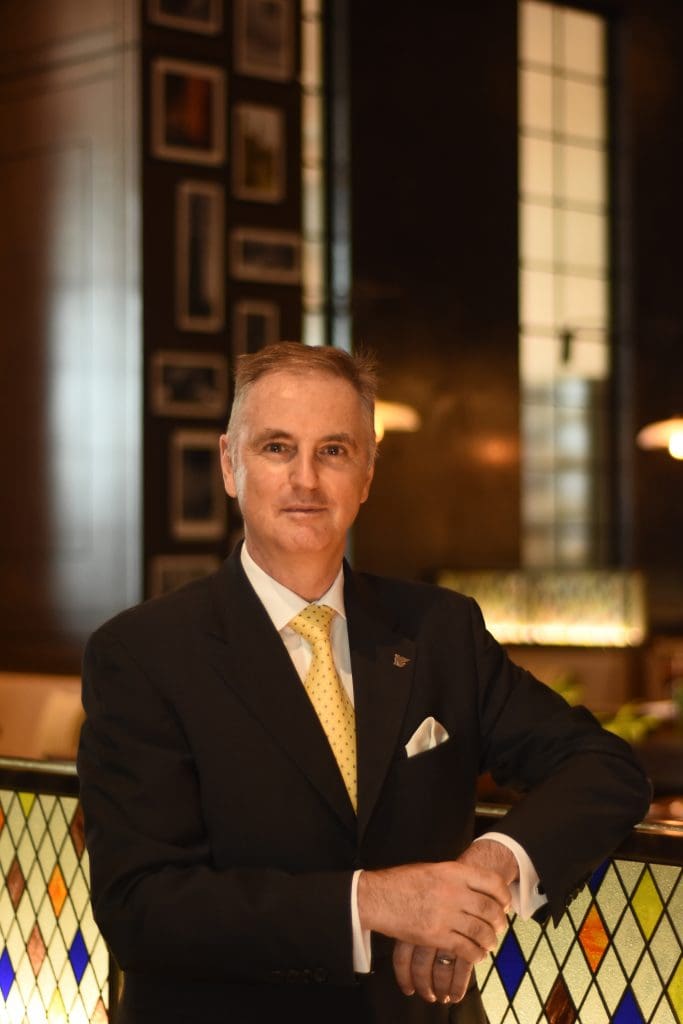In our Know Your Leader series, we invite Dietmar Kielnhofer, General Manager, JW Marriott Hotel Mumbai Sahar, Mumbai to share his experiences, his journey, and some unknown facts about him that keep him going.

This in turn will motivate teams to delve into themselves and bring out their lesser-known selves.
Even though a picture is worth a thousand words, sometimes the right words are just what you need to make it through the day, to inspire your team, or to change your perspective.

Today’s Traveller : How do you keep up your team’s morale?
Dietmar Kielnhofer: In today’s time and age, the most difficult task a leader has is to keep his team motivated and focused. This is where a companies’ culture plays a pivotal role, this is where the rubber meets the road. Let us bear in mind that over one year ago the market was incredibly buoyant, we were riding the back of the dragon, we all thought we are (commercially) invincible, everything was going our way . . . . . and then came COVID-19.
What I have learned over the last 10 month is that an open door policy does miracles for staff morale and motivation. You have to show your team that you genuinely care for their well-being, and above all be visible, demonstrate that you are sincere and understand the concerns, the needs and wants of your associates, and create a culture of shared experiences.
One great learning over this period was to demystify COVID, remove the fear of the unknown, and bring clarity to the confusion.
It was time to show empathy with your team, over-communicate what needs to be done and what is the new norm, respectively what is the expectation from all stakeholders, first and foremost customers. This is also the time to be transparent, where you have to live up to your brand expectations, values, and culture. During a crisis like COVID, it is imperative to be emotionally connected to your team, listen to their innermost fears and anxiety; in a nutshell, practice your leadership skills.
Today’s Traveller : A major milestone which shaped you as a leader?
Dietmar Kielnhofer: People always talk about the character traits of great leaders and bosses they had and how they inspired them. I look at inspiration and leadership from a more controversial angle. I observe, I learned more from poor leaders than from good ones.
We all take good leaders for granted, yet what defines a great leader is a clear, unassailable purpose, it is principles and character that matter. What I require from a “leader of people” is trust, support, honesty and the freedom to make decisions (and the freedom to make mistakes ).
Many years ago I said to myself: if I am in leadership position I will not make the same mistakes my bad bosses made. I learned from their poor judgment and inadequate leadership behavior and skills. And I vowed not to repeat these mistakes; this approach served me rather well.
The old adage that, a smooth sea does not make a good sailor holds true. You don’t learn when everything is smooth and goes according to plan, you learn and grow during an emergency, when you must step out of the comfort zone and learn . . . . . and COVID-19 is a once in a lifetime crisis that provides this platform.
Today’s Traveller : How do you approach a challenge?
Dietmar Kielnhofer: I try to be objective, fair, and open-minded and look at the challenge with a healthy dose of common sense. Too many times we overcomplicate and overthink problems, simplicity to problem resolution is key.
A managerial attribute to successful decision making is to gather as much information as possible, weigh the available options and look at it from a viewpoint of different stakeholders.
Challenges come in all shapes and forms, but they also come with opportunities and different protagonists have different interests to protect. The challenge is then to identify who has a valid point!
Who has the most to gain, respective to lose? We all know the more stakeholders involved in a decision the more complex the problem and, potentially, the more convoluted the outcome. Hence, I am a great believer in Occam’s Razor philosophy which states that all things being equal, the simplest solution is usually the best one.
At the end I try to reach a compromise that satisfies the major parties (to prevent loss of face). The decision making thought process tends be biased by nature and if a compromise cannot be reached than I try to mitigate the outcome for the losing party, nobody likes the feeling that he/she lost.
The skill in negotiating a satisfactory and acceptable outcome is to avoid a win lose scenario as there is a possibility to antagonize an already fragile situation further. At the end it comes down to satisfying your key stakeholder/s.
Today’s Traveller : What is that one thing that you have learnt during Covid-19 Pandemic?
Dietmar Kielnhofer: Irrespective of how you look at COVID, it was a game-changer of biblical proportions that forced us to rethink the way we conduct business. COVID was an invaluable learning experience for an entire generation of hospitality executives. But it was also time for self-reflection and learning.
Never take your past successes for granted. COVID-19 was the great equalizer, it made it clear that impeccable hygiene and sanitation standards are non-negotiable, it leveled the playing field.
COVID-19 has reset the tourism and hospitality industry and we start all over again. It taught us also a vital lesson in crisis management: be prepared for all eventualities, you never know from which direction the next curved ball comes from (and there are plenty).
Never let you guard down, be over prepared, don’t compromise on your principles and your values. Keep an open mind, be agile and be willing to learn and adopt. The “rules book” was completely rewritten over the past ten months; actually it is work in progress, and there are still a couple of chapters under review.
Today’s Traveller : What is that one thing that you cannot miss?
Dietmar Kielnhofer: A good cup of coffee, exercise and a good book.
Today’s Traveller : Which non-professional activities give you energy and satisfaction?
Dietmar Kielnhofer: Rigorous exercise, biking, golf, a good movie, and/or a book. Anything that takes my mind off work for a short period of time to gain a different perspective and recharge my batteries.
Read More: Corporate Connect



